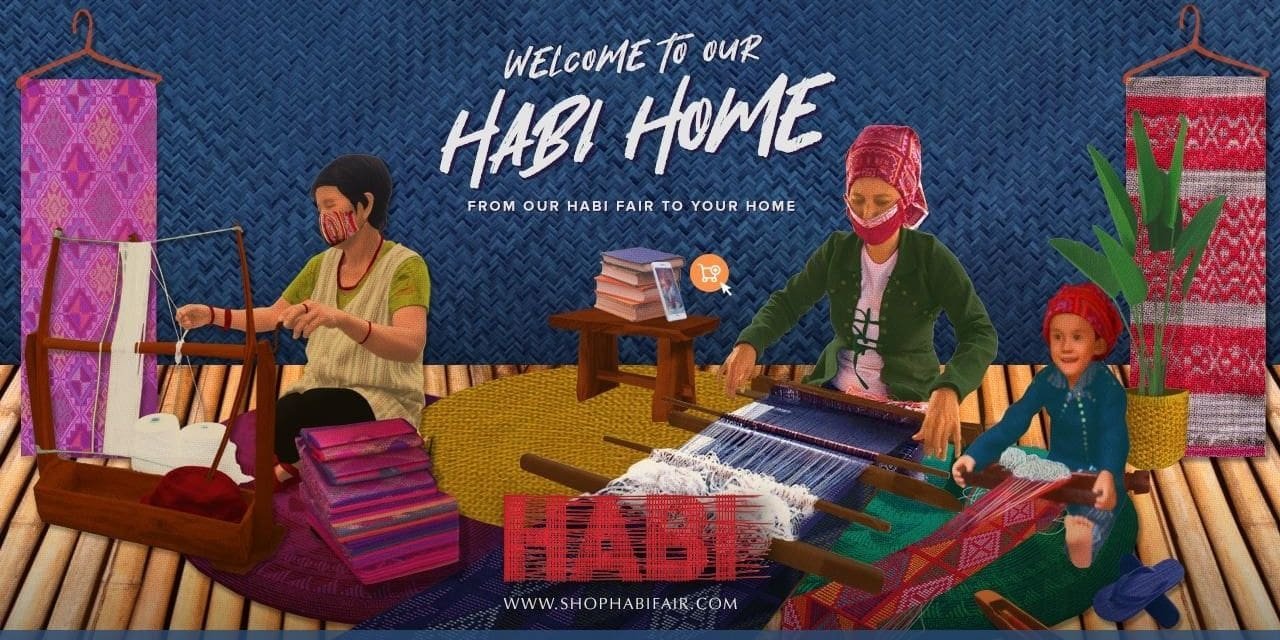On Sunday, merchants from over the Philippines gathered at Glorietta Mall in Makati for the 13th annual Likhang Habi Market Fair, hosted by HABI: Philippine Textile Council.
The fair aimed to preserve and promote the country’s unique textile traditions by showcasing the skill and ingenuity that characterize Philippine culture.
Seventy artists, craftspeople, and designers from places like the National Capital Region, the Cordillera Administrative Region, Central Luzon, Bicol, Mimaropa, the Cagayan Valley, Ilocos, Visayas, Zamboanga, Davao, Caraga, Northern Mindanao, and the Bangsamoro Autonomous Region in Muslim Mindanao all came together for the event.
The creatives showcased an array of one-of-a-kind goods, from contemporary home decor to one-of-a-kind jewellery to limited-edition bags and shoes made from eco-friendly materials.
As President of HABI: Philippine Textile Council Mia Villanueva emphasized, the primary objective of the fair is to provide market opportunities for weavers from the provinces.
“The small weaver from the provinces will have the chance to present their wears in Manila with designers, with interior decorators, people that will use their materials,” according to her.
Most weavers are women, and HABI wants to help them earn a living wage to provide for their families’ basic needs, like sending their kids to school and buying a motorcycle.
The creative vision behind the sustainable fashion label Pammè, Pamela Mejia, was recently discussed.
Beaded bags are made from plastic waste collected by Pammè and recycled into beads. The fact that the beads are made by female incarcerated people in the Quezon City PDQ sets their venture apart.
I, too, have become alarmed about plastic trash. We generate the third-greatest amount of global plastic waste. I’ve discovered a new technology to recycle plastic into something useful, like beads, but we are the first to do so.
“We should support sustainable fashion brands instead of following trends. Mejia suggested we should wear something to help the environment, especially underprivileged people.
Jamie Naval, CEO of sustainable toy company Ten Twenty Kids, is another entrepreneur who has spoken out about his company’s dedication to the environment. Their products are created by artisan moms in Rizal, Philippines, using previously discarded fabrics.
They work with designers, brands, and manufacturers to recycle scrap fabrics into new playthings for kids.
The products are stuffed with organic kapok cotton instead of the more conventional polyester fibre to keep with their eco-friendly mission.
Philip Dizon Torres, founder of Pidayit, collaborates with homemakers to make art from discarded fabric. They use fabric scraps to create stunning works of art inspired by recent happenings in Pampanga.
For a long time, I’ve been a fabric collector. I have a lot of excess fabric. I’ve made them into beautiful art pieces,” Torres said.

